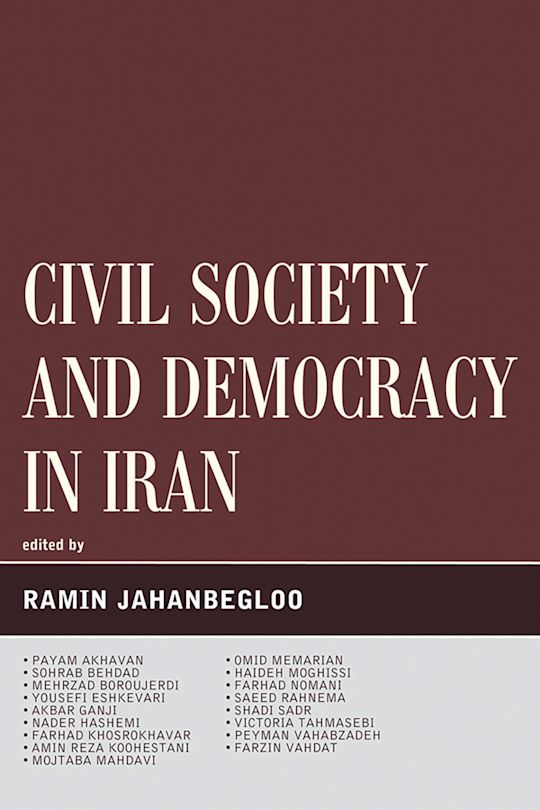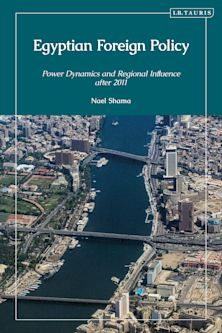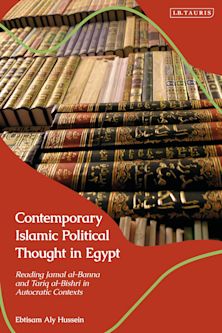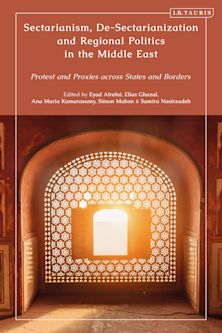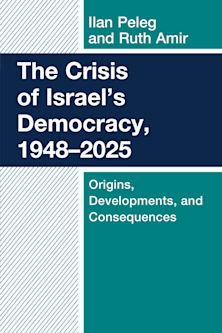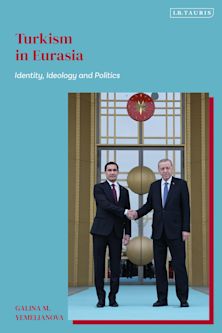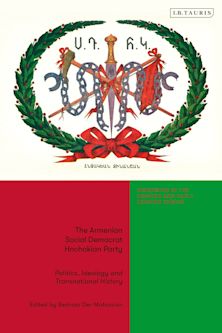- Home
- ACADEMIC
- Politics & International Relations
- Middle East Politics
- Civil Society and Democracy in Iran
Civil Society and Democracy in Iran
Ramin Jahanbegloo (Anthology Editor) , Payam Akhavan (Contributor) , Sohrab Behdad (Contributor) , Mehrzad Boroujerdi (Contributor) , Yousefi Eshkevari (Contributor) , Akbar Ganji (Contributor) , Nader Hashemi (Contributor) , Farhad Khosrokhavar (Contributor) , Amin Reza Koohestani (Contributor) , Mojtaba Mahdavi (Contributor) , Omid Memarian (Contributor) , Haideh Moghissi (Contributor) , Farhad Nomani (Contributor) , Saeed Rahnema (Contributor) , Shadi Sadr (Contributor) , Victoria Tahmasebi (Contributor) , Peyman Vahabzadeh (Contributor) , Farzin Vahdat (Contributor)
Civil Society and Democracy in Iran
Ramin Jahanbegloo (Anthology Editor) , Payam Akhavan (Contributor) , Sohrab Behdad (Contributor) , Mehrzad Boroujerdi (Contributor) , Yousefi Eshkevari (Contributor) , Akbar Ganji (Contributor) , Nader Hashemi (Contributor) , Farhad Khosrokhavar (Contributor) , Amin Reza Koohestani (Contributor) , Mojtaba Mahdavi (Contributor) , Omid Memarian (Contributor) , Haideh Moghissi (Contributor) , Farhad Nomani (Contributor) , Saeed Rahnema (Contributor) , Shadi Sadr (Contributor) , Victoria Tahmasebi (Contributor) , Peyman Vahabzadeh (Contributor) , Farzin Vahdat (Contributor)
You must sign in to add this item to your wishlist. Please sign in or create an account
Description
In this timely, informative edited volume, major Iranian scholars and civic actors address some of the most pressing questions about Iranian civil society and the process of democratization in Iran. They describe the role of Iranian civil society in the process of transition to democracy in Iran and offer insight about the enduring legacy of previous social and political movements—starting with the Constitutional Revolution of 1906— in the struggle for democracy in Iran. Each contributor looks at different aspects of Iranian civil society to address the complex nature of the political order in Iran and the possibilities for secularization and democratization of the Iranian government. Various contributors analyze the impact of religion on prevailing democratic thought, discussing reformist religious movements and thinkers and the demands of religious minorities. Others provide insight into the democratic implications of recent Iranian women’s rights movements, call for secularism within government, and the pressure placed on the existing theocracy by the working class. The contributors address these and related issues in all their richness and complexity and offer a set of discussions that is both accessible and illuminating for the reader.
Table of Contents
Introduction
Part I: Theorizing Civil Society in Iran
Chapter 1: Civil Society in Iran: The Story of a Century-Long Struggle
Chapter 2: Theorizing Civil Society in Contemporary Iran
Chapter 3: The Green Movement in Iran: Democratization and Secularization from Below
Chapter 4: The Civil Society Approach to Democratization in Iran: The Case for Bringing it Back in, Carefully
Part II: Islam, Secularism, and Efforts for Democratization
Chapter 5: Religious Disputation and Democratic Constitutionalism: The Enduring Legacy of the Constitutional Revolution on the Struggle for Democracy in Iran
Chapter 6: Religious Life in a Secular State
Chapter 7: Humble Secularism
Chapter 8: What is our Problem?
Part III: Gender and Politics
Chapter 9: Green Women of Iran
Chapter 10: A Feminist Agenda for the Iranian Constitution: Gender at the Intersection of Disputed Identities
Chapter 11: The Other Side of the Quest for Democracy in Iran
Chapter 12: Women and the Women’s Movement in Post-elections: Double Females?
Part IV: Identity and Group Rights
Chapter 13: The Baha’i Community, Human Rights, and the Construction of a New Iranian Identity Chapter 14: Democracy, Civil Society, and the Iranian Working Class: The Struggle for Independent Labor Organizations
Chapter 15: Labour Organizing in Iran: Lessons of the 1979 Revolution
Chapter 16: A Confident Generation
Index
About the Editor and Contributors
Product details
| Published | Dec 30 2011 |
|---|---|
| Format | Ebook (Epub & Mobi) |
| Edition | 1st |
| Extent | 318 |
| ISBN | 9780739172230 |
| Imprint | Lexington Books |
| Series | Global Encounters: Studies in Comparative Political Theory |
| Publisher | Bloomsbury Publishing |
About the contributors
Reviews
-
Ramin Jahanbegloo has collected an outstanding group of specialists to produce Democracy and Civil Society in Iran. This work will be of greatest interest not only to those concerned with the current state of the civil society problem internationally, but to all who have been watching the Iranian crisis and the Green movement. The analyses offered here have a better chance of helping to comprehend where Iranian politics may be headed than any other available study. A remarkable piece of collective work.
Andrew Arato, The New School for Social Research
-
This is a timely collection of essays that look beyond recent events to engage with the perennial problems of Iranians’ quest for constitutional governance and a more humane society.
Houchang Chehabi, Boston University
-
Inspiring. By bringing out the richness of Iranian civil society traditions, Jahanbegloo’s volume sustains the hope that a tolerant, pluralistic and liberal society may yet eventually emerge out of the current repressive situation in the country.
Shlomo Avineri, Hebrew University of Jerusalem









